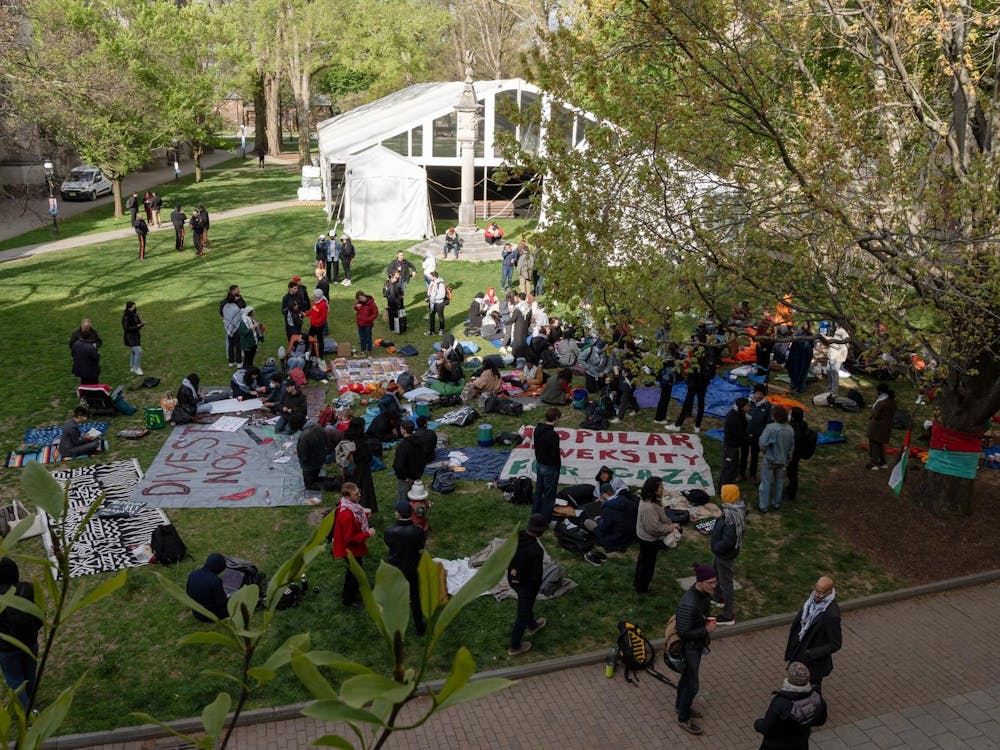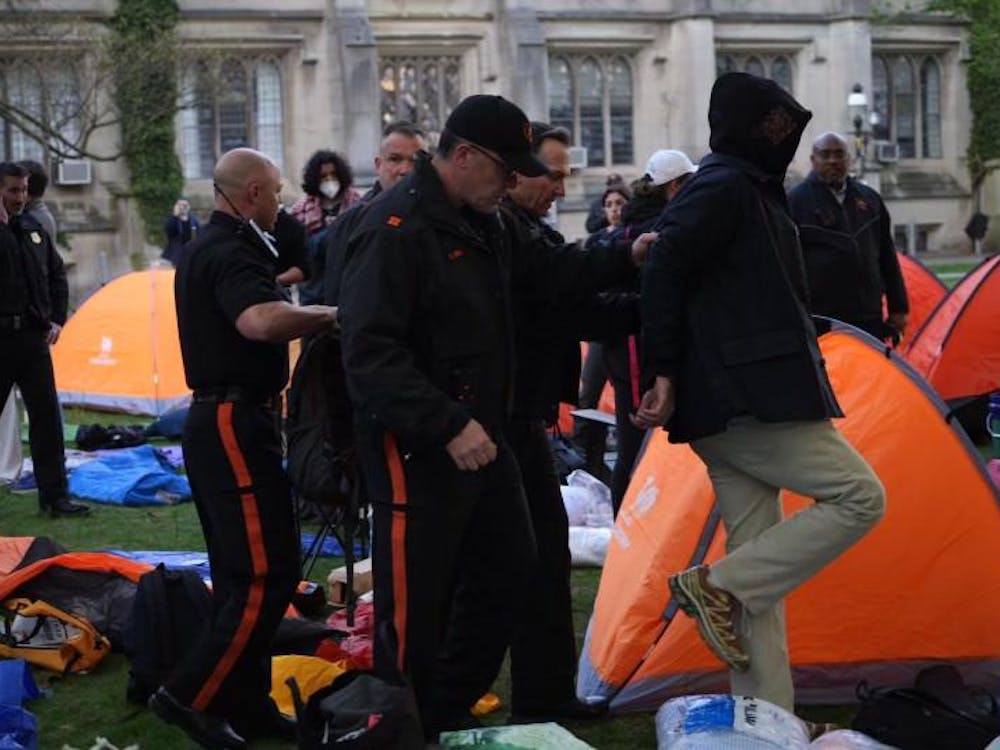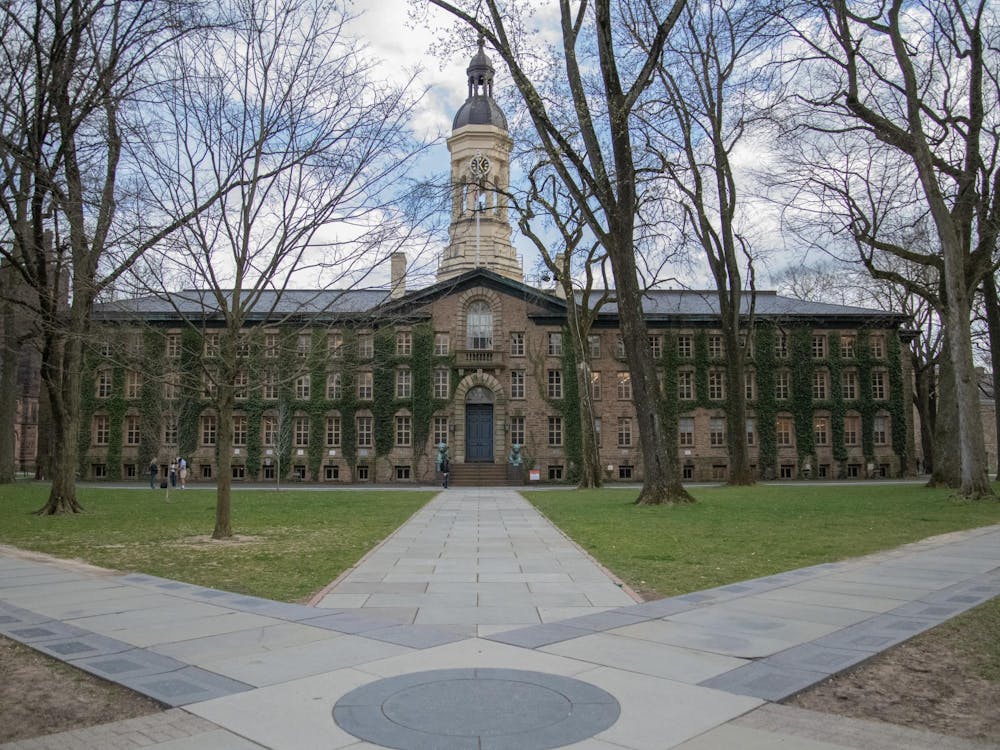In the last five years, the number of tenured history department faculty whose research and teaching focuses on the United States has fallen from a recent high of nine in 2002 to five this year.
"We recognize that we're shorthanded," 20th century American history professor Kevin Kruse, who received tenure last spring after six years as an assistant professor, said. "But we're working to correct it."
The history department has suffered significant losses with the resignations or retirements of five faculty since 2003. Three American historians — Pulitzer Prizewinning Civil War scholar James McPherson, prominent colonialist John Murrin and African-American expert Nell Irvin Painter — all retired within a span of two academic years.
Elizabeth Lunbeck, who specializes in women's history and the history of psychiatry, left the University for Vanderbilt last summer. Another historian of American women and of the 19th century, Christine Stansell, who has been at the University since 1982, is on leave this year and has accepted a position at the University of Chicago to begin in the fall.
Now the department has begun to search for already-tenured historians from other universities to fill the holes in the U.S. history faculty.
To begin rebuilding the American faculty following the retirements of McPherson, Murrin and Painter, the department hired colonial historian Philip Morgan in 2005. He spent a year at the University before returning to Johns Hopkins, where he had been a tenured full professor since 2000.
The department also recently completed a search for a 20th century political historian, hiring Boston University's Julian Zelizer, who will join the faculty in the fall.
The department creates search committees to fill vacancies, canvassing scholarship for potential candidates and soliciting recommendations, department chair and Latin American historian Jeremy Adelman said. Once the department has formulated a list of potential candidates, it encourages them to apply for open positions. From there, candidates "essentially go through tenure review," he said.
The department's searches for a colonial historian to fill the spot vacated by Morgan and for a professor of African-American history are both winding down, Kruse said. The department is negotiating with finalists for both positions, who would join the University's faculty by fall 2008 at the latest.
The next academic year will see the formation of a committee to look for a 19th-century historian and a historian of the 20th-century and gender issues –– the niches left by Lunbeck and Stansell. "I think the faculty has been so strong here for so long because we take these hirings so seriously," Kruse said.
As the department searches for permanent replacements, it has temporarily filled the gaps with visiting professors. Penn historian Stephanie McCurry was a visiting professor this year, and next year NYU's Linda Gordon will also take a visiting professor position.
Though Adelman acknowledged that the department has been subsisting "through a combination of visitors," he said the method is "not a good solution."

Efforts to find more permanent replacements have proved fruitless, however. Historians Lizabeth Cohen and Walter Johnson of Harvard, David Gutierrez of the UC San Diego and George Chauncey of Yale have all turned down offers from Princeton. McCurry was offered a permanent position but also turned down the job.
In interviews, McCurry and Cohen both said they turned down offers from the University because of its location. McCurry said she was reluctant to commute from Philadelphia, where she lives with her family, on a longterm basis. Cohen added that "Princeton suffers from its location ... It doesn't support [professors] commuting," especially from hundreds of miles away in New England.
Meanwhile, U.S. social and political historian Sean Wilentz is expected to return from leave, though his wife, Stansell, is going to Chicago. But another American historian, Daniel Rodgers, will be on leave to write a book about 1980s social thought, funded in part by a Guggenheim Fellowship.
Students and faculty were conflicted about the effect these recent hiring woes have had on the teaching in the department.
Lecturer Paul Miles, the undergraduate department representative, noted that the dearth of tenured U.S. historians has not discouraged students from concentrating in U.S. history. "It's not as if the vacancies had any significant impact on student interest in U.S. history, since the enrollment remains high," he said.
But Jeffrey Wayno '07, chair of the department's Undergraduate Advisory Council, said that "people are likely to be somewhat concerned if there aren't a certain number of [professors in American] history because 65 percent of the concentrators focus on American history."
American history concentrator Charlton DeSaussure '08 echoed Wayno's concerns, noting that "a lot of people, especially within the department, talked about the lack of courses on the revolutionary war and Civil War."
But Brette Tannenbaum '07, another history major, said that "there always seemed to be plenty of American history courses being offered."








